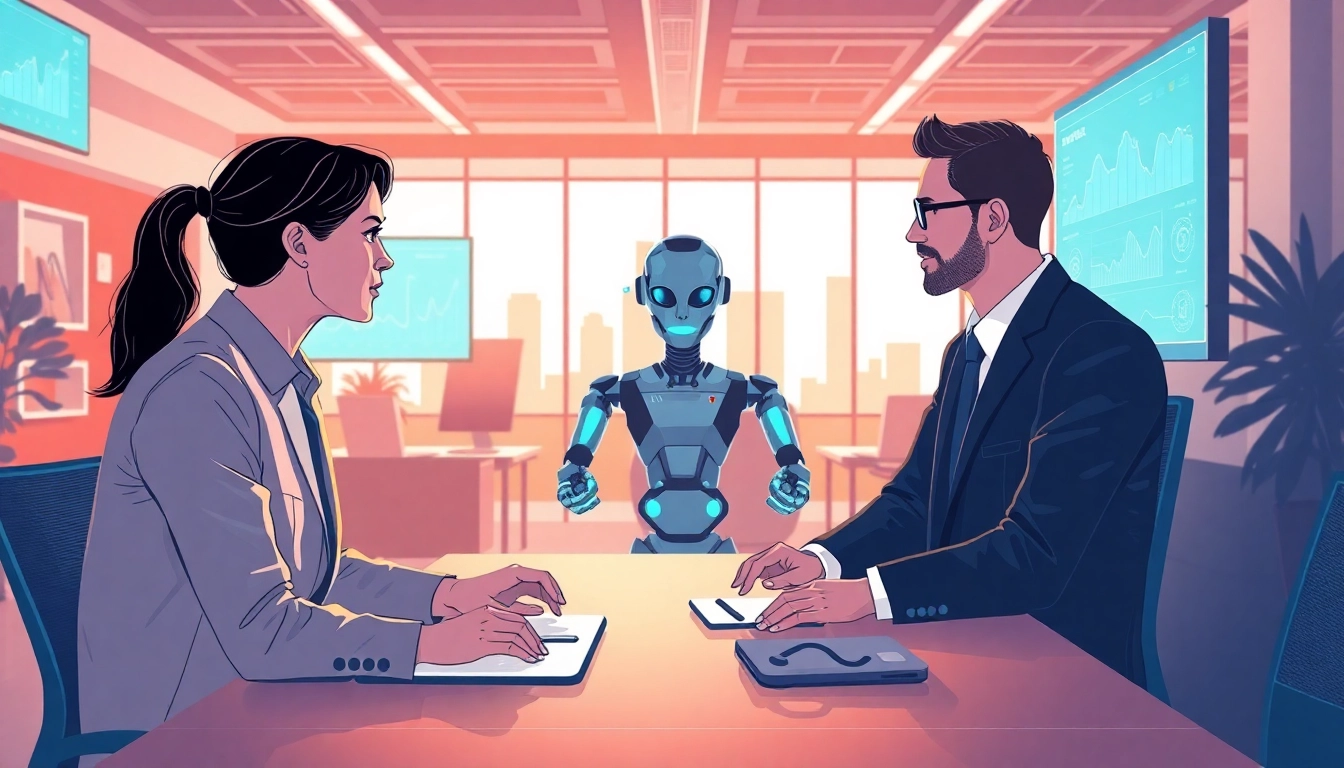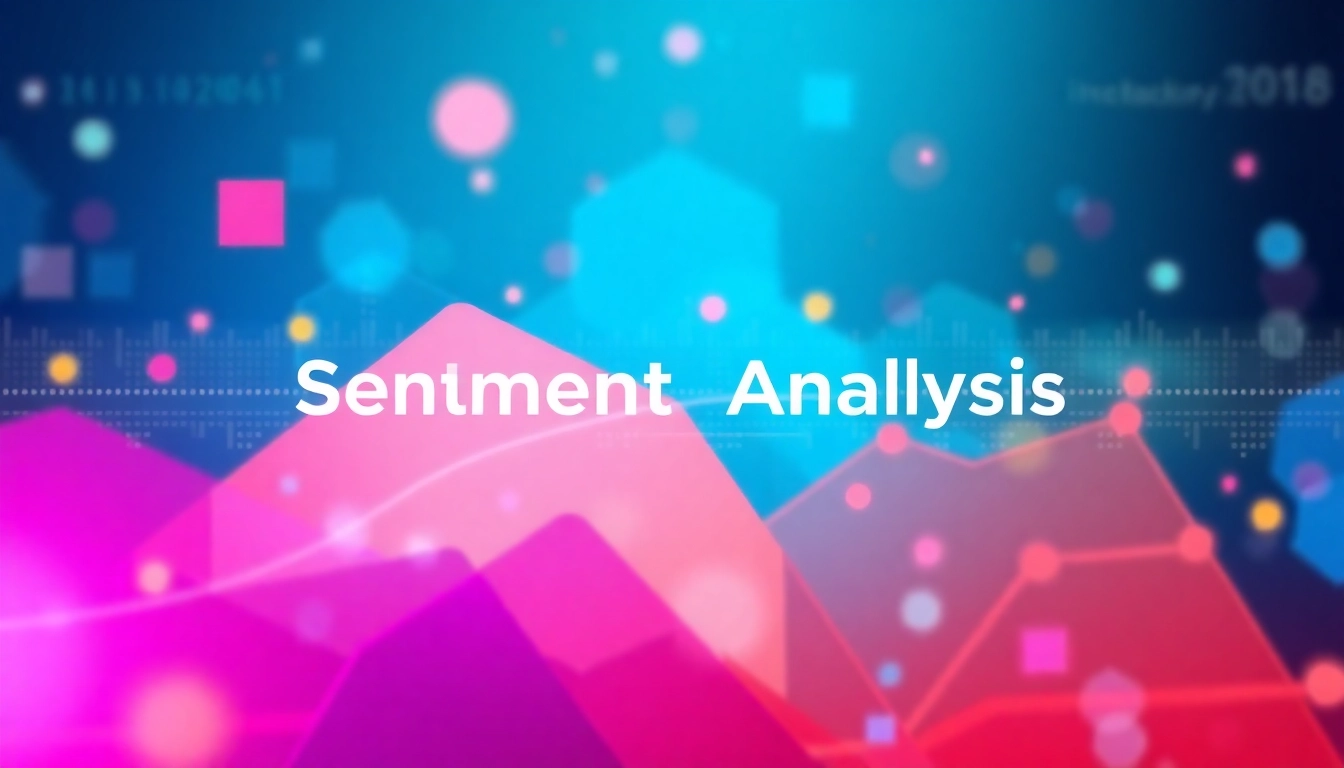Understanding Agentic Human AI
Defining Agentic Human AI
Agentic Human AI is a transformative development in artificial intelligence that extends beyond mere automation. At its core, it refers to AI systems capable of acting autonomously, making decisions based on their understanding of context and achieving objectives without requiring constant human oversight. This paradigm shift enables businesses and organizations to leverage technology that not only performs tasks but also adapts and learns from its environment, becoming more efficient over time. The concept signifies a significant enhancement in AI’s capabilities, allowing it to engage in complex reasoning, recognize patterns, and implement strategies that align with specified goals.
This innovative approach combines human-like cognition with machine efficiency, paving the way for multifaceted applications across various industries, including healthcare, finance, and customer service. By leveraging Agentic Human AI, organizations can reimagine their operational frameworks, fostering enhanced productivity and effectiveness.
The Evolution of Agentic AI Technologies
The evolution of Agentic AI technologies has been shaped by advancements in machine learning, natural language processing, and data analytics. In the earlier days of AI, systems were primarily rule-based, capable of executing tasks as programmed by human operators. As technology progressed, the introduction of machine learning allowed AI to analyze vast datasets, recognizing patterns and improving performance without explicit programming.
Agentic AI represents the culmination of these advancements, featuring AI systems equipped with the ability to learn from new information, adapt to changing conditions, and formulate strategies autonomously. The integration of advanced algorithms and high-capacity computing power facilitates a new level of agility and efficiency, empowering AI to tackle complex problems that involve multiple variables and potential outcomes.
This evolution has not only improved the reliability and accuracy of AI systems but has also significantly broadened their usability. As a result, businesses can deploy Agentic AI solutions to handle a myriad of tasks, from predictive maintenance in manufacturing to personalized recommendations in e-commerce.
Key Differentiators from Traditional AI
Traditional AI systems operate under a relatively static framework: they follow pre-defined rules and lack the ability to learn and adapt in real-time. In contrast, Agentic Human AI is fundamentally different in several key aspects:
- Autonomy: While traditional AI requires consistent human inputs or supervision, Agentic AI can operate independently, making decisions based on its analysis of data and the context it operates within.
- Contextual Understanding: Agentic AI has enhanced capabilities to understand context. It can interpret nuances within data sets, making it more capable of addressing complex scenarios that traditional AI might struggle with.
- Adaption and Learning: Agentic AI systems utilize advanced machine learning methodologies, enabling continuous learning from experiences. This adaptability boosts efficiency and performance as the AI becomes better at predicting outcomes and optimizing actions over time.
- Goal-Oriented Actions: Traditional AI performs tasks based on commands, whereas Agentic AI is designed to pursue specific goals, employing strategic planning and iterative processes to achieve optimal results.
Applications of Agentic Human AI in Various Industries
Enhancing Workplace Productivity
One of the most significant areas where Agentic Human AI is making an impact is in workplace productivity. By automating routine tasks, freeing up human workers to focus on strategic initiatives, AI systems can enhance workplace efficiency and overall performance. Agentic AI systems can analyze workload patterns and optimize task allocation, ensuring that resources are maximized.
For example, in project management, Agentic AI tools can intelligently assign tasks to team members based on their strengths and past performance. They can also anticipate project bottlenecks and recommend reallocating resources preemptively, ensuring that deadlines are met.
Moreover, AI-driven personal assistants can streamline communication, manage schedules, and prioritize tasks, which helps reduce employee burnout and enhances job satisfaction.
Use Cases in Healthcare and Finance
Agentic Human AI is revolutionizing sectors like healthcare and finance through its ability to analyze large volumes of data quickly and accurately.
In healthcare, Agentic AI systems can assist in diagnosing diseases by analyzing patient data, medical histories, and research databases, suggesting possible treatment plans and predicting patient outcomes. For instance, machine learning algorithms can process imaging data to identify abnormalities that may not be visible to the naked eye, significantly improving diagnostic accuracy.
In finance, Agentic AI optimizes trading and investment strategies. Investing algorithms can analyze market data in real-time, enabling quicker responses to fluctuations. Furthermore, Agentic AI can detect fraudulent activities by recognizing unusual patterns in transaction data, enhancing security measures and minimizing financial losses.
Transforming Customer Service Experiences
Customer service benefits immensely from the capabilities of Agentic Human AI. AI-driven chatbots and virtual assistants utilize natural language processing to handle customer inquiries, complaints, and support requests promptly. With the ability to learn and adapt, these systems can resolve issues quicker than traditional methods.
For instance, Agentic AI can analyze customer interactions to understand sentiments, enabling organizations to tailor responses that enhance customer satisfaction. By identifying prevalent issues or questions, businesses can proactively enhance their services or products, effectively creating a feedback loop between AI and human input.
Additionally, these systems can predict customer behavior and personalize interactions based on collected data, fostering deeper engagement and loyalty over time.
Advantages of Implementing Agentic Human AI
Improved Decision-Making Processes
One of the core advantages of Agentic Human AI is its contribution to improved decision-making processes. AI systems operate on a foundation of data analysis, drawing insights from diverse data sources and providing actionable recommendations. This capability empowers organizations to make informed decisions based on real-time data rather than relying on intuition or incomplete information.
For instance, in marketing, Agentic AI can analyze customer interactions, market trends, and historical performance to recommend targeted advertising strategies, optimizing ad spend for better reach and conversion rates.
Cost Efficiency and Resource Allocation
Implementing Agentic Human AI can lead to significant cost savings for organizations. By automating routine tasks, businesses can reduce labor costs and minimize human errors that often lead to waste or rework. Additionally, Agentic AI enhances resource allocation by ensuring that human and technological resources are utilized effectively, which leads to a leaner and more productive operational model.
The significant reduction in time spent on manual tasks allows employees to focus on higher-value projects, driving innovation and strategic initiatives that directly contribute to the bottom line.
Fostering Innovation and Creativity
Agentic Human AI not only improves efficiency but also fosters a culture of innovation and creativity. By automating routine processes, employees are freed to engage in creative thinking and problem-solving activities. AI can enhance brainstorming sessions by providing relevant data, trends, and insights that inform decision-making, enabling teams to explore new ideas based on factual analysis.
Furthermore, by acting as a collaborative partner, Agentic AI can stimulate discussions, suggest innovative approaches, and even assist in the design and development of new products or services, creating a dynamic environment that encourages out-of-the-box thinking.
Challenges and Considerations
Ethical Implications of Autonomous AI
As organizations increasingly adopt Agentic Human AI, they must grapple with ethical implications. Autonomous systems can raise questions about accountability, bias, and transparency. AI decisions that affect human lives—especially in sensitive areas like healthcare or law enforcement—must be carefully scrutinized to ensure fairness and justice.
It’s crucial that organizations establish robust frameworks addressing these concerns, ensuring that AI systems operate ethically and transparently. This may include implementing diverse datasets to minimize bias, conducting regular audits of AI decision-making processes, and maintaining human oversight where necessary.
Addressing Privacy Concerns
With the implementation of Agentic Human AI, privacy concerns also escalate. AI systems often require access to sensitive personal information to operate effectively, which can lead to data breaches or misuse. Organizations must prioritize data security measures, including encryption and adherence to privacy regulations, to safeguard personal information.
Transparency with customers about how their data is utilized and ensuring individuals’ right to control their information is essential in building trust and maintaining loyalty.
Balancing Human and AI Collaboration
While the capabilities of Agentic Human AI are remarkable, organizations must carefully balance human roles with AI collaboration. The potential displacement of jobs due to automation is a concern, necessitating a strategy for workforce transition. Training and reskilling initiatives should be prioritized to prepare employees for more complex tasks that require human insight, creativity, and emotional intelligence.
In cultivating a collaborative environment, organizations can emphasize the strengths of both humans and AI, leveraging AI’s analytical capabilities alongside human judgment and experience to achieve optimal outcomes.
The Future of Work with Agentic Human AI
Trends in AI-Driven Work Environments
The workplace landscape is evolving with the integration of Agentic Human AI. Companies are increasingly adopting AI-driven solutions to enhance productivity, agility, and decision-making efficiency. This trend emphasizes the shift towards hybrid work environments where AI technologies assist humans in their tasks.
Additionally, the proliferation of remote work has accelerated the need for AI tools that maintain workflow continuity, communication, and performance tracking, indicating that the role of AI will only grow in the coming years.
Redefining Roles and Skills Requirements
As Agentic Human AI becomes more prevalent, job roles and requisite skills will continue to evolve. While simpler tasks may diminish, the demand for advanced skills such as data analysis, AI programming, and ethical oversight will grow. Organizations must invest in training and development to equip their workforce with the necessary tools to thrive in an AI-enhanced environment.
Preparing for a Tech-Savvy Workforce
Preparing for a tech-savvy workforce means implementing educational initiatives that emphasize digital literacy and critical thinking. Organizations can foster a culture of adaptability by encouraging continuous learning and providing opportunities to gain competencies in AI technologies. Employee engagement through tailored training programs can also enhance acceptance and integration of Agentic Human AI into workplace practices.
Furthermore, collaboration between educational institutions and businesses can help align curriculum with industry needs, ensuring graduates possess skills relevant to the future workforce.

